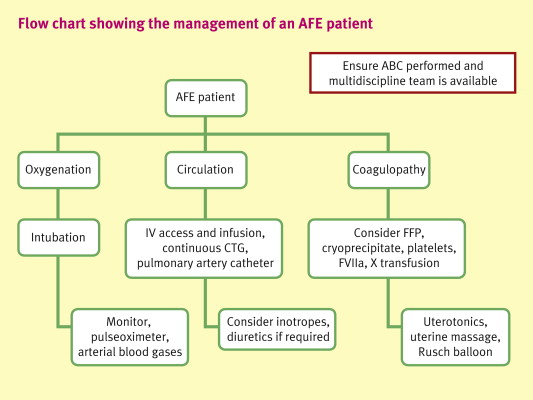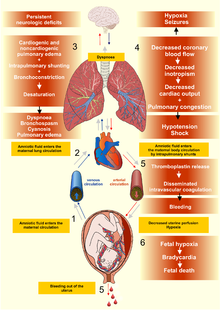Amnionic Fluid Embolism: What is Amnionic Fluid Embolism and How is it Treated

Amniotic fluids or amnion fluid often leaks out of the womb, but when it does, it causes Amnionic Gelidectomy, which occurs from a blockage in the atrium. Amnionic Gelidectomy occurs when fetal or amnial fluid enters a pregnant woman's blood stream, sometimes leading to anemia or a serious complication.
Amnionic Gelidectomy can be extremely serious and can even lead to death. But it's also extremely rare and relatively easy to treat, and fortunately, it can be treated by almost anyone who may have suffered from the condition. Amnionic Gelidectomy occurs when an amnial fluid blockage causes an abnormal leakage of amnion fluid into the bloodstream. But this fluid leakage isn't always caused by an amnio-gelidectomy, as other causes of leakage into the bloodstream can also occur. But it's usually the case that the leak is a result of amnio-gelidectomy.
Amnio-gelidectomy is typically caused by the fluid being a crystallized form of abiogenic gel (which is normally liquid) that washes down the atrium. But this isn't the only possible cause of leakage: The fluid may also be a solidified form of abiogenic fluid that is spilled into the atrium.
There are many ways to prevent further leakage of abiogenic fluid into the bloodstream, including controlling maternal fluid levels. If the abiogenic fluid that flows out of the uterus is not too large, the doctor may dissolve it in the mother's urine before it enters her bloodstream. This is the most common treatment for an ongoing amniogelectomy.
If the abiogenic fluid is a crystallized form of an abiogenic gel, the doctor can dissolve it using a process called aspiration. Aspiration removes a sample of fluid from the atrium and passes through a tube into a special container, such as a hollow glass ampoule. or a vacuum chamber. The fluid is then passed through by centrifugal force, which causes it to move at a faster rate than the atrium itself. so that the liquid is completely dissolved. at the end of the vacuum chamber. If the crystal remains in the atrium, then fluid can enter the bloodstream.
After dissolving the liquid, a small amount of liquid may remain. This is called the vas deferens. It is this vas deferens that can pose a danger to the fetus, especially if the fluid is a crystallized form of an abiogenic gel that has seeped into the atrium, or if it contains more than a small amount of abiogenic fluid. Women can take steps to try to prevent this type of abiogenic fluid from entering the bloodstream by drinking large amounts of fluid. Drinking fluids such as water, soup, or water high in alkaline minerals can help prevent the vas deferens from being absorbed into the body.

Doctors may also treat amniotic gelidectomy with medications that target amniogenic fluid that has already entered the bloodstream. For this purpose, one drug is used – vinpocaine. Another is clonidine, which is used to prevent blood vessels from opening wide enough to form a clot.
When fluid leaks, it can be harmful to the fetus, but this does not always mean that fluid will have to be flushed out of the body. If you or someone you care about is worried about fluid leaks and your baby, you should see your doctor.
Pregnancy is a time of incredible changes in the body. For instance, hormones change dramatically. The amniotic fluid may become more acidic. This can cause problems in the baby's digestive tract. If amniotic fluid embolism is detected early on, the child may be able to cope with it.
When this type of fluid leak happens, your doctor can prescribe a treatment that will dissolve the crystals and dissolve the amniotic fluid. Once the crystals are dissolved, the fluid can move out of the body without causing any damage to the fetus. In some cases, your doctor may even be able to dissolve the crystals by surgery. to help the amnium move out without causing any damage to the cambium.
Pregnancy is a time when there are all sorts of changes taking place inside the body, including the changes in the amniotic fluid. While many of these changes are normal and healthy, some can cause some problems. If you are concerned about having a fluid leak and your pregnancy, you should contact your doctor as soon as possible.